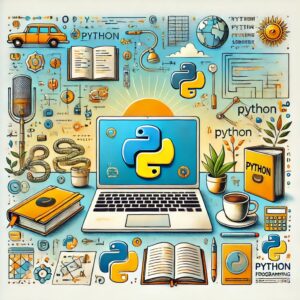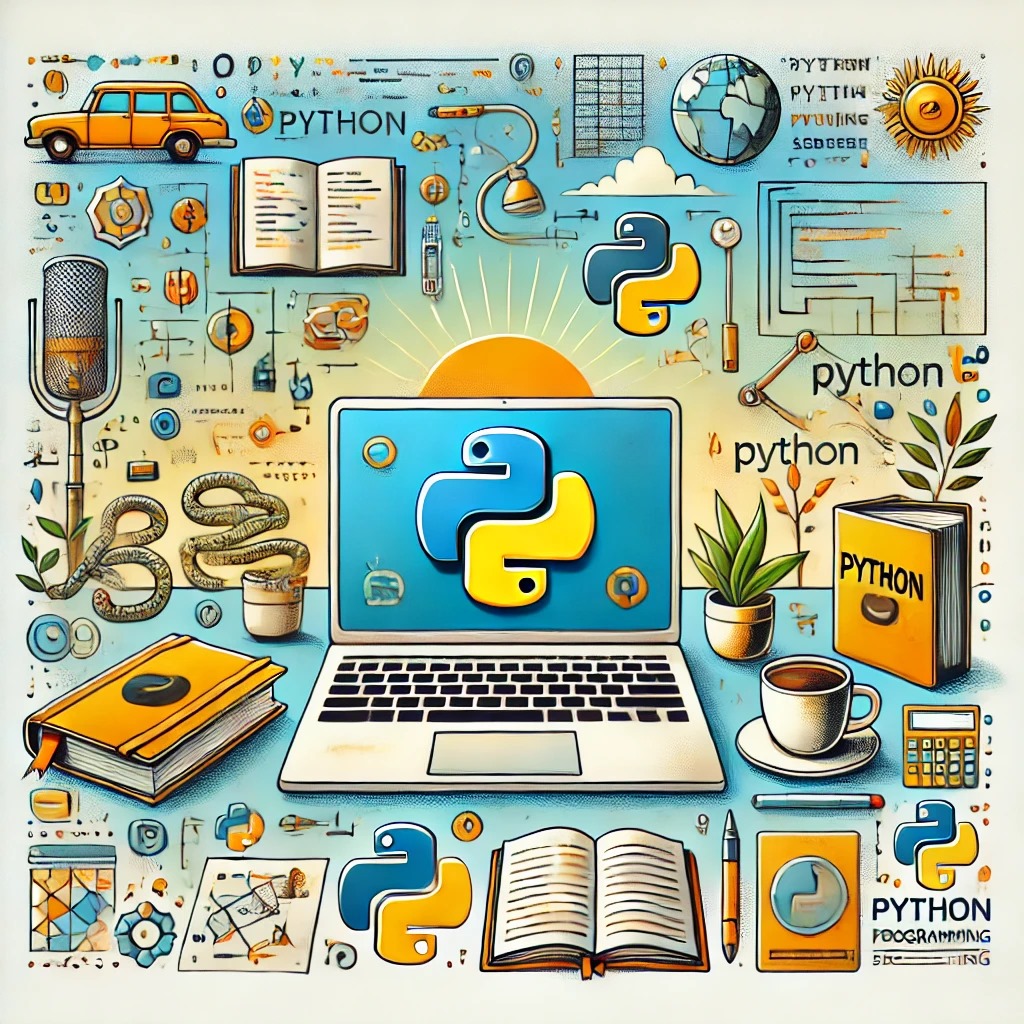
Hey everyone! Welcome to the first episode of our Python series! I’m really excited to have you here as we dive into the world of Python programming.
In this series, we’re going to cover the basics and answer a few key questions, like:
- What is Python?
- What can you do with Python?
- What kind of jobs can you get after learning it?
- And what fields you can explore once you know Python.
Let’s jump right in!
Table of Contents
What is Python?
So, what is Python? Simply put, Python is a programming language that’s easy to learn and use. It was created by Guido van Rossum and first came out in 1991. Since then, it’s become one of the most popular programming languages in the world.
The reason Python is so popular is that it’s simple, clean, and easy to understand. Even if you’ve never written a line of code before, you’ll find Python’s syntax super-friendly!
What Can You Do with Python?
Now, you might be wondering, “What can I actually do with Python?” The answer is—so much! Python is incredibly versatile. Here are just a few things you can use it for:
- Web Development: You can build websites and web apps.
- Data Science: Analyzing data, building reports, or creating machine learning models.
- Data Engineering: Managing and transforming data to ensure it’s accessible for analysis and reporting.
- Automation: Automating tasks like sending emails, organizing files, or running scripts for repetitive processes.
- Software Development: Creating all kinds of software, from desktop applications to complex systems.
- Game Development: Yes, you can even make games with Python!
- Cybersecurity: Write scripts to automate security tasks, analyze vulnerabilities, and develop security tools.
- Backend Development: Building the server-side components of web applications, handling data storage, and managing user authentication.
Python is used in many industries, from tech companies to finance, healthcare, and beyond. Whether you want to build websites, work with data, create games, or secure systems, Python can do it all!
What Kind of Jobs Can You Get with Python?
After learning Python, you’ll have a lot of job opportunities. Here are some of the roles you can go for:
- Python Developer: Writing code to build applications or websites.
- Data Scientist: Working with data to solve problems or make business decisions.
- Machine Learning Engineer: Building AI and machine learning systems.
- Automation Engineer: Automating processes and tasks with scripts.
- DevOps Engineer: Managing and deploying applications on the cloud.
And the best part? Python developers are in high demand and often have some of the highest-paying jobs in the industry!
What Fields Can You Explore with Python?
Once you’ve learned Python, there are so many cool fields you can explore, like:
- Web Development: Building websites and backend systems.
- Data Science: Analyzing and visualizing data.
- Machine Learning & AI: Working on AI projects like recommendation systems or self-driving cars.
- Game Development: Creating games and simulations.
- Cybersecurity: Writing scripts to automate security checks or analyze threats.
- Finance: Automating trading systems or analyzing financial data.
There’s something for everyone, no matter what you’re interested in!
Why Python is the Best Language to Learn Right Now
So, why should you learn Python? Well, it’s simple, powerful, and in high demand. Whether you’re a complete beginner or already know a bit about coding, Python is the perfect language to start with. It’s used by companies like Google, Netflix, and NASA—so you know it’s the real deal!
That’s a quick overview of Python! In our next episodes, we’ll show you how to set up Python and start writing your first programs. We’re going to make this fun, easy, and interactive—so stick around!


2 Responses
Helpful content.
i want full data docs
you are in reality a good webmaster The website loading velocity is amazing It sort of feels that youre doing any distinctive trick Also The contents are masterwork you have done a fantastic job in this topic